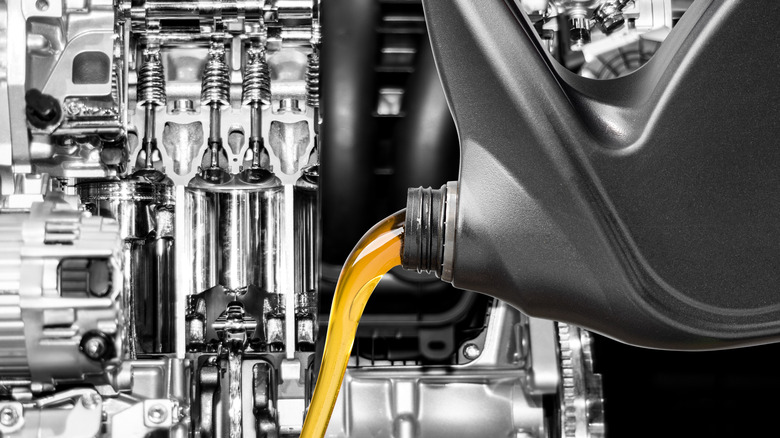Why You Should Never Skip An Oil Change In Your Car (And What Could Happen If You Do)
All vehicles with internal combustion engines require periodic maintenance to keep ticking. Internal fluids need frequent checking and replenishment under the hood, so inspecting all engine fluids weekly or before embarking on a long drive is an excellent idea. For instance, the coolant needs replacing at least once every 30,000 miles or three to five years (whichever comes first), although early flushing reaps more benefits in the long run.
The same goes for the automatic transmission fluid (ATF), which should be flushed and replenished every 60,000 to 100,000 miles. If your vehicle has a CVT or continuously variable automatic gearbox, consider changing the CVT oil every 30,000 to 60,000 miles. Meanwhile, the brake fluid that helps stop your vehicle needs servicing every 30,000 miles or two years.
However, the motor oil needs replacing more frequently than the coolant, gearbox, or brakes. Any enthusiast will tell you that skimping on oil changes is possibly a bad idea as it could lead to a host of expensive problems. Here are the things that could go wrong.
Oil is the lifeblood of any combustion engine
The oil inside your car's engine does more than lubricate and reduce friction. Engine oil or synthetic motor oils help keep the internal parts cool by absorbing heat as they lubricate. Moreover, good engine oil removes dirt and other debris from the byproducts of combustion while preventing sludge.
Engine sludge is a thick, gooey gel-like substance that forms when oil becomes severely contaminated with dirt, metal particles, and partially burnt fuel. Sludge will initially appear on top of the engine and could affect the oil circulation, causing more friction, wear, and engine damage. Skipping on oil changes will increase the chances of sludge inside your car's engine, and it could introduce a host of issues like poor engine performance, bad fuel economy, a noisy engine, excess pollution, and possibly a voided warranty for newer cars. The same is true for diesel trucks.
The excellent news is frequent oil changes will prevent all those nasty engine problems, including sludge. Clean oil does a better job of reducing friction during cold starts, and it cleans the engine to prevent sludge. It may sound cliché, but frequent oil changes will keep your engine happy. Check the owner's manual of your vehicle to determine the recommended intervals between oil changes, which are generally between 5,000 to 7,500 miles (or longer), depending on the make and model of your vehicle.

